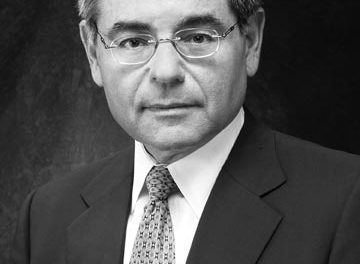
Federal grand jury investigations of high-profile individuals often draw the attention of the media. Most Americans have little or no knowledge of what a grand jury does and how it operates.
Under the Fifth Amendment to the United States Constitution, a person cannot be charged with a felony by the Department of Justice unless an indictment is returned by a grand jury. An indictment is the formal charging document that sets forth the crime that the federal government wants to prosecute. The originators of the Constitution sought to provide a safeguard against abusive prosecutions by requiring the decision to bring the charges be placed with a grand jury rather than totally at the discretion of police and prosecutors.
A grand jury is comprised of 23 members of the community that are selected at random from voter registration lists. The grand jury conducts its business in secret, meaning, that it is not open to the public. The only people allowed into the grand jury are that grand jury members, the prosecuting attorney, a court reporter, and the witness. Two witnesses are not allowed in the grand jury at the same time. No judge is present in the grand jury. The attorney for the government must be an attorney with the United States Attorney’s Office or the Department of Justice. The function of the government lawyer is to present witnesses to the grand jury, question the witnesses, advise the grand jury of the law, and draft the criminal charges in the form of an indictment. To return an indictment, there must be at least 16 members of the grand jury present and at least 12 votes to approve the indictment. The grand jury, in making the decision to indict, is not required to find guilt beyond a reasonable doubt but only that there is probable cause to believe that the person indicted may have committed the crime. The potential defendant has no right to appear before the grand jury and the lawyer representing the potential defendant has no right to address the grand jury or present any information that the indictment should not be issued.
Grand jurors can request the prosecutor to issue subpoenas to require individuals to appear in the grand jury to answer questions and produce documents. The government lawyer, with the assistance of a federal investigator, such as an FBI or DEA or agent, decides which witnesses to put in the grand jury. The government lawyer may only put the investigator before the grand jury to summarize the evidence. The government lawyer may subpoena the target of the investigation.
If subpoenaed, a person must appear before the grand jury. The person who appears before the federal grand jury has no right to have his or her lawyer present during the questioning. However, the witness may have his or her attorney outside the grand jury room and may leave the grand jury to consult with his or her attorney. The best practice is for the witnesses to consult with an attorney experienced with the operations of federal grand juries before appearing to testify. All people who appear before a grand jury, including the person to be indicted, has the right to refuse to answer questions based upon their right not to incriminate themselves under the Fifth Amendment. The right not to answer a question can also be based upon a legally recognized privilege. For example, a person cannot be forced to answer questions concerning discussions with their lawyer or discussions with their spouse.
Many have complained that some government lawyers abuse the grand jury process by failing to disclose information that would show that the individual should not be indicted. While the grand jury started as a shield to protect against abusive prosecution, it appears that today it is also used as a tool of the prosecution. It must be remembered that an indictment can be the result of evidence to justify a criminal charge or can be the result of hiding evidence from the grand jury that would otherwise prevent the government prosecution.




